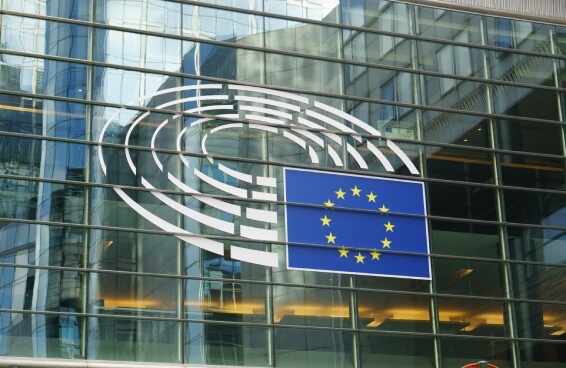The new EU whistleblowing directive: getting on board

Implementing the new EU whistleblowing directive throughout organisations across all the bloc’s member states poses a huge challenge. In addition to the many procedural requirements, convincing employees, who may have grown up in a culture and society that viewed whistleblowing disapprovingly, means there is a lot of work to be done.
Directive (EU) 2019/1937 on the protection of persons who report breaches of Union law (the whistleblowing directive) must be implemented by all EU member states by no later than 17 December 2021. It is intended to set a minimum standard of protection for whistleblowers across the EU.
Member states must:
- make organisations within their jurisdiction with more than 50 employees establish effective internal reporting channels
- create or appoint a competent authority as an escalation route if an organisation fails to manage a whistleblowing complaint
- provide a wide range of legal and financial protections for whistleblowers
- invalidate non-disclosure-type agreements in relation to whistleblowing cases.
Implementing an effective whistle-blowing policy
Tui Iti, TMF Group’s Chief Compliance Officer, believes there are three key factors for implementing a highly effective whistleblowing policy within an organisation – governance, training and communication.
Regarding the governance elements, Mr Iti thinks the challenge is how to get everyone on board with following and making use of internal whistleblowing channels in the first place.
He explains how TMF Group chose to create a uniform policy, emanating from and backed by the global organisation’s board. This was a clear demonstration to employees that the policy was at the core of the group’s ethos and something in which they could have full confidence.
“We adopted a group policy, endorsed by our group board – made up of both our stakeholders and our executive directors. They see it and promote it as a very key and important risk-management tool. We had a lot of support from the top of the organisation to implement a strong whistleblowing policy, which is very much connected to our code of conduct and linked to our values as an organisation.”
Mr Iti also highlights the importance of training and communication as part of effective implementation of a whistleblowing policy. Making sure people have an awareness of the policy, what it is designed to do and how to access the company’s ‘Speak-Up’ channels is critical. Over the last year TMF Group has run training programmes, campaigns and workshops introducing the whistleblowing policy, its purpose and highlighting the benefits to the business of staff using the Speak-Up channels.
“Once we had adopted the policy, we wanted everyone in the group to understand it and know its purpose – but also, if they needed to access it, what they had to do. We wanted to make sure people had a good understanding of what the purpose of the policy was, how to access the Speak-Up channels, what protections and level of confidentiality are available to them if they were going to speak up, and what the process would involve, including the information required from them as part of investigating a report.”
To ensure the process runs effectively and keeps everyone on board, Mr Iti emphasises how vital the system underpinning the whistleblowing policy is.
“Once you start to receive reports you need a way to manage and deal with those. We created a two-tier system so employees have two places to go and not just one.
“They have an option to report locally or at a group level. Whichever option they elect, we offer the same protections to them. We offer anonymity in terms of reporting and we are very keen for our employees to know that there is a system of trust and confidence in place and that we will investigate their concern. It is a complex process, but we want to keep it as simple as possible, making it fully accessible to all our colleagues across the globe.”
Overcoming scepticism
Overcoming scepticism is something else that needs to be overcome to make sure that the application of the directive in companies can work effectively
Historically, in the Central and Eastern European (CEE) region there remains a sense of doubt about whether a whistleblowing system will work. This is due to a lack of trust, a lingering fear of reprisal if you Speak-Up and concerns over a whistleblower remaining anonymous. There is also some scepticism about whether the right action will be taken to address the problem.
Katarzyna Saganowska, TMF Group EMEA Head of Compliance, says: “There are two angles to the story. First there is the perception of whistleblowing in society, where in general people would associate the whistleblower as a ‘snitch’ rather than as a person acting in good faith.
“There is a huge amount of work to be done by member states, and governmental and NGO bodies, to explain that whistleblowing is an act of good faith and courage. The act of reporting wrongdoing in a company is aimed at improving the situation with which the whistleblower formally disagrees.
“Then there is the angle of the company itself. This can also vary, depending on the size of the business. For companies that are very international it is easier to make themselves compliant as many procedures are already in place. This is in contrast to smaller companies with no international exposure, where whistleblowing procedures or processes are limited, and will require a huge amount of work to be done to meet the requirements of the new directive.
“International companies may mistakenly think, ‘We have the correct policies, procedure and training, therefore we are good.’ – but for some of those companies, they may not receive any whistleblowing notices, so there are questions over how many of these processes which have been put in place are effective, and how much they actually impact each individual employee.”
Petra Mareckova, TMF Czech, Manager of Corporate Secretarial Services, also sees smaller companies having problems implementing effective whistleblowing policies. She says: “The biggest problem in some countries at the moment is that they don’t have whistleblowing law fully implemented and where there are laws they are mostly reserved for special businesses like finance and state authorities.
“The problem is the companies need to spend money to establish the policies and procedures, and set up channels to make them effective. I think a lot of smaller local companies will have problems implementing the solutions and will find it challenging to change the mindset of employees who can be scared to report the problems for fear of reprisals. It will be a major challenge for smaller companies to make sure that potential whistleblowers feel they are protected.”
Key points
- Make sure everyone in your organisation understands how to make a report.
- Put mechanisms in place so people have the confidence to make a report.
- Anonymity is a vital option - include the ability to make confidential reports.
- Ensure that people are trained on internal procedures, including acknowledging reports received and establishing as well as running investigations.
- Document how to conduct a thorough investigation that is fair and objective.
- Make sure investigations are thoroughly documented, conducted in a timely manner and are auditable.
- Give feedback on reports and the status of the investigation.
- Share the outcome and reasons behind the decisions with the organisation, being as transparent as possible, so helping to build trust and confidence.
Talk to us
TMF Group has whistleblowing experts across European Union member states. Need more information? Make an enquiry with us today and we can help you further understand and discuss how the directive will affect your company.





